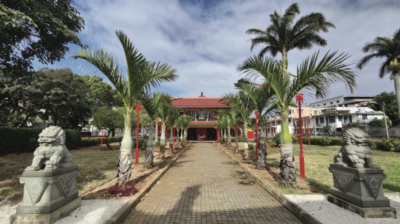Development of a gender framework for asset recovery programme
The International Centre for Asset Recovery (ICAR) is currently implementing a multi-year, technical assistance programme in Mozambique, whose ultimate goal is to strengthen the country’s anti-corruption enforcement and asset recovery capacity. ICAR has a team of experts embedded within Mozambique’s Office of the Attorney General (PGR); the team focuses on providing case-based assistance and mentoring, training, and advice on institutional and legal reform.
While it has long been recognised that there are gendered aspects of corruption, including that corruption has a disproportionate impact on women, there is limited research and frameworks for gender mainstreaming in anti-corruption programmes. Nonetheless, there is a broad consensus that incorporating gender considerations improves the quality of anti-corruption interventions.
International human rights law, specifically the UN Convention on the Elimination of all forms of Discrimination against Women (CEDAW), requires states to incorporate gender in state interventions. This obligation is also reflected in several other UN Declarations, such as the Beijing Declaration and Platform for Action.
Furthermore, with increasing frequency, ICAR’s donors request analysis of gender issues within the programmes they are financing. Up to now, ICAR has not developed a programme-specific gender strategy or an institute-wide gender analysis framework for its asset recovery efforts. However, gender has not been absent from ICAR’s programming. ICAR incorporated gender and
inclusion as a cross-cutting theme in its Operational Strategy 2021-2024. Furthermore, many ICAR programs have benefited from country-specific political economy analyses carried out by the Basel Institute on Governance’s Public Governance unit to complement ICAR technical assistance.
In this assignment, ICAR seeks to develop a gender analysis framework that will reflect on key gender considerations within the current programme and provide the basis for a gender strategy for a potential second phase of its asset recovery programme in Mozambique.



